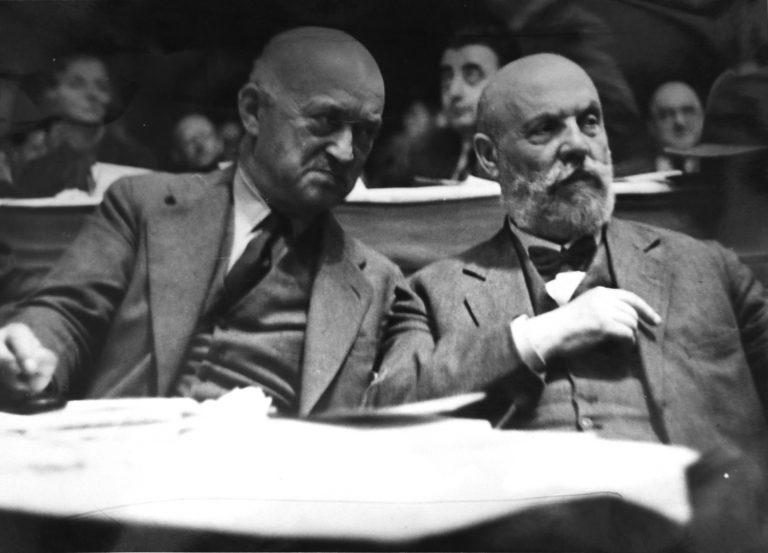Activist
Schocken was an ardent Zionist, focusing mostly on advancing cultural and economic affairs. During his first trip to Palestine in 1922, he foresaw the economic potential of the lands surrounding the Haifa Bay in northern Palestine. He helped Keren Kayemet LeIsrael (the Jewish National Fund) purchase these lands, for which he developed an industrial vision. Today, Haifa Bay is Israel’s most important northern industrial zone. Representing the Jewish National Fund, Schocken went on to purchase the gravesite of the medieval philosopher Moses Maimonides (the “Rambam”) from its Arab owner in Tiberias. The site quickly became a popular landmark for enlightened Judaism.
Schocken traveled again to Palestine in 1925, to attend the historical inauguration of the Hebrew University of Jerusalem. There, he said, he “participated in one of the eternal hours of our ancient people.” In 1933, Schocken became the head of the Hebrew University’s executive committee, acting as CEO. He retained his favorite architect, Erich Mendelsohn, to design the main buildings of the university’s budding campus on Mount Scopus. But most importantly, he concentrated on the inner soul of the institution, which he described as the “basis for our unfolding culture.” He worked hard to open the university’s gates to professors and students who fled Germany. In time, these scholars became the pillars of Israel’s academic system.
Back in Europe, hundreds of youth managed to escape Nazi Germany and find a productive life in Palestine on account of Schocken’s activism. “Gut Winkel”, an educational agricultural farm that Schocken set up in his brother Simon’s former large Brandenburg estate, prepared city youth for life and work in agriculture, mainly in the Kibbutzim.
Soon after German forces invaded Poland, Schocken delivered a radio address celebrating the opening of the Hebrew University’s 1939 academic year. He stated that he was duty-bound to “keep the torch of Jewish thought, to fulfill our role worthily as a link in the chain we are handing down to future generations.”
